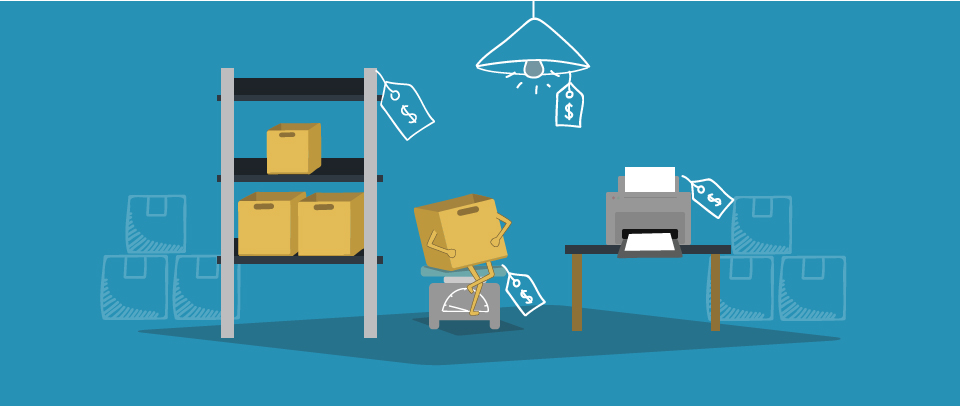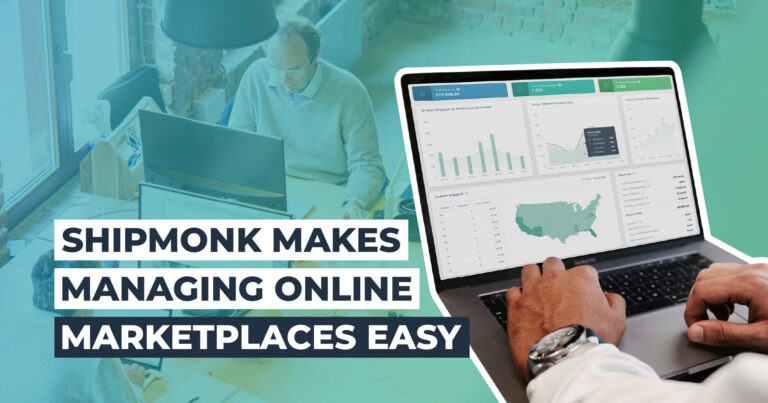Order Fulfillment Terminology and Fees
So now that you’re convinced that it’s really to your advantage to outsource your ecommerce order fulfillment, you need to compare fulfillment companies. Each fulfillment center has a different pricing structure that they feel most benefits their target customer, as well as, drives profit for the company, but you need to find the best match for your business. It can be challenging to identify the pros and cons of all the different fulfillment firms out there, and perhaps even daunting when it comes crunching the numbers.
Download the Fulfillment Providers | Fee Comparison sheet to easily compare fulfillment companies.
To help you out, we’ve created a simple checklist to help you with terminology and also to familiarize yourself with the customary fees incurred with order fulfillment.
- Receiving
- Pick and Pack
- Storage Fees
- Return Processing
- Customer Support
- Inventory Management Software
- Set Up & Shopping Cart Integrations
- Miscellaneous Fees
- International Shipping
- Special Projects
- Order Minimums
Need to bring it back to the basics? Check out our article on all things order fulfillment first.
Receiving
All fulfillment companies (commonly referred to as 3PLs) have a process in place to receive inventory in bulk, store it in the warehouse, log it into the system, and monitor inventory levels. Receiving inventory is an ongoing process, so if you choose a fulfillment center that charges for this service, you’ll need to calculate your turnover rate and how often you’ll need to restock. Another factor regards exactly how the fulfillment center charges for receiving, whether it’s by the hour or by SKU (Stock Keeping Unit). Many fulfillment companies waive the receiving fee since they’ll make enough on the pick and pack or storage fees. Still, it’s something to consider and factor in.
Pick and Pack
Pick and pack fees are the easiest to compare because all fulfillment centers charge for picking orders. You just need to compare fee schedules. The more important question to ask is, “At what level will I begin receiving discounts on your pick fee based on the number of orders I process per month?” Also, you’ll need to ask about any fees for additional items included with each order, such as marketing or promotional collateral. Basic packing materials are typically included in the pick and pack fee, but it’s worth clarifying. You shouldn’t have to worry about a surprise bill for packing material at the end of the month.
Storage
Storage fees are the most difficult cost to forecast. This is because storage requirements are prone to fluctuation more than any other variable. More difficult is that some fulfillment companies try to mask storage fees in elaborate equations. Here’s the gist of it:
Storage fees are calculated as cost per cubic foot and/or cost per pallet required to store your product. Most fulfillment companies optimize storage as much as possible, so you’ll only be charged for space occupied and even then only on a month-to-month basis. The key things to consider when calculating storage are the size of the product, the number of SKUs and the quantity of product on hand. Most commonly, you’ll need a unique storage location for each SKU, so items don’t get mixed up. Confusion regarding location of items is the #1 cause of inaccurate picking which can lose you both money when it comes to returns and may lose you customers.
Pro Tip: Storage Insurance
When you store your inventory ask about different ways to insure your product. Some common options include:
- The fulfillment company insures the product on your behalf
- Adding the fulfillment warehouse as an additional location to your existing insurance policy
- Waiving coverage altogether
Each option has its advantages and disadvantages. Depending on the setup of your business and the value of your product, you can decide the best option for your business.
Return Processing
Since the fulfillment center’s location is the “SHIP FROM:” address, your fulfillment partner will be responsible for receiving customer returns. Depending on the fulfillment company, returns may be processed and billed differently, so make a point to ask. Also, find out if they’ll inspect the product for damage. Very often returns are billed close to the same rate as the original order so exchanges will be charged almost as much as a new order requiring you to pay (again) for pick and pack.
Customer Support
The biggest differentiator among fulfillment companies may well be Customer Support. Some fulfillment companies provide a dedicated support team. With other companies, you’re lucky if you can get a live person on the phone. Be sure to find out what level of customer support—if any—is included in your monthly fees. Conversely, if you’ll be billed separately, find out exactly how you’ll be billed each time you or your customer needs assistance. Although every fulfillment company strives to keep customers happy and minimize the number of questions or concerns, issues are bound to arise. You need to know they’ll be dealt with promptly and courteously so your brand isn’t damaged.
Inventory Management Software
Every fulfillment company worth its salt uses software to manage your inventory. Since it’s imperative to use software to optimize and automate your logistics, it’s standard that software costs be integrated into general order fulfillment fees. However, some companies try to make money setting up the software for you, which brings us to our next point.
Set Up & Shopping Cart Integration
The inventory management software offered by the fulfillment center needs to integrate directly with your existing shopping cart in order to download orders for automatic fulfillment. Chances are you’re using a conventional shopping cart or marketplace that the software is preprogrammed to handle, so setup should be simple, fast and free. If you happen to use a shopping cart that requires a custom integration, you may be billed for the developers’ time. That’s not necessarily unreasonable, but the fulfillment company should have a general idea of how much specialized integration costs per non-conventional cart or marketplace and not try to sidestep and hedge a quote with “it all depends.”
One more setup fee you may run across is setup of your SKUs (Stock Keeping Units). Simply put, a SKU must be created in the system and associated with the physical product in the warehouse. That way when an order is processed through your online store, the SKU is identified via the software and the exact product is picked. Click here for more information on SKUs and product mapping.
Miscellaneous Fees
Fulfillment companies try their best to keep their pricing structures simple, but that doesn’t mean they’re all-inclusive. There are countless fulfillment activities that require additional effort on the part of the fulfillment center and you’ll most likely get charged if something’s not included in your monthly plan. Here are some additional costs you should address with your fulfillment provider before you sign the contract:
- Rush orders
- International Shipping
- Special Projects
- Order Minimums
- Kitting and assembly
- Custom packing procedures
- Counting inventory
- Document filing
Feeling overwhelmed? Don’t feel bad. This whole subject of order fulfillment fees is complicated, but it’s better to ask questions up front rather than finding random charges on your bill each month with no clue where they came from and no way to eliminate them if the fulfillment company won’t work with you.



